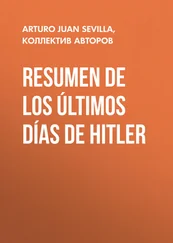I told Nobu a number of times how grateful I was. Each time I told him, he looked more pleased with himself. Just as I was about to suggest that we take a walk together in the newly fallen snow, he glanced at his watch and drained the last sip of his beer.
“Sayuri,” he said to me, “I don’t know when we will see each other again or what the world will be like when we do. We may both have seen many horrible things. But I will think of you every time I need to be reminded that there is beauty and goodness in the world.”
“Nobu-san! Perhaps you ought to have been a poet!”
“You know perfectly well there’s nothing poetic about me.”
“Do your enchanting words mean you’re about to leave? I was hoping we might take a stroll together.”
“It’s much too cold. But you may see me to the door, and we’ll say goodbye there.”
I followed Nobu down the stairs and crouched in the entryway of the teahouse to help him into his shoes. Afterward I slipped my feet into the tall wooden geta I was wearing because of the snow, and walked Nobu out to the street. Years earlier a car would have been waiting for him, but only government officials had cars these days, for almost no one could find the gasoline to run them. I suggested walking him to the trolley.
“I don’t want your company just now,” Nobu said. “I’m on my way to a meeting with our Kyoto distributor. I have too many things on my mind as it is.”
“I must say, Nobu-san, I much preferred your parting words in the room upstairs.”
“In that case, stay there next time.”
I bowed and told Nobu good-bye. Most men would probably have turned to look over their shoulders at some point; but Nobu just plodded through the snow as far as the corner, and then turned up Shijo Avenue and was gone. In my hand I held the piece of paper he’d given me, with Mr. Arashino’s address written on it. I realized I was squeezing it so hard in my fingers that if it were possible to crush it, I’m sure I would have. I couldn’t think why I felt so nervous and afraid. But after gazing a moment at the snow still falling all around me, I looked at Nobu’s deep footprints leading to the corner and had the feeling I knew just what was troubling me. When would I ever see Nobu again? Or the Chairman? Or for that matter, Gion itself? Once before, as a child, I’d been torn from my home. I suppose it was the memory of those horrible years that made me feel so alone.

You may think that because I was a successful young geisha with a great many admirers, someone else might have stepped forward to rescue me even if Nobu hadn’t. But a geisha in need is hardly like a jewel dropped on the street, which anyone might be happy to pick up. Every one of the hundreds of geisha in Gion was struggling to find a nest from the war in those final weeks, and only a few were lucky enough to find one. So you see, every day I lived with the Arashino family, I felt myself more and more in Nobu’s debt.
I discovered how fortunate I really was during the spring of the following year, when I learned that the geisha Raiha had been killed in the firebombing of Tokyo. It was Raiha who’d made us laugh by saying that nothing was as bleak as the future except the past. She and her mother had been prominent geisha, and her father was a member of a famous merchant family; to those of us in Gion, no one had seemed more likely to survive the war than Raiha. At the time of her death she was apparently reading a book to one of her young nephews on her father’s estate in the Denenchofu section of Tokyo, and I’m sure she probably felt as safe there as she had in Kyoto. Strangely, the same air raid that killed Raiha also killed the great sumo wrestler Miyagiyama. Both had been living in relative comfort. And yet Pumpkin, who had seemed so lost to me, managed to survive the war, though the lens factory where she was working on the outskirts of Osaka was bombed five or six times. I learned that year that nothing is so unpredictable as who will survive a war and who won’t. Mameha survived, working in a small hospital in Fukui Prefecture as a nurse’s assistant; but her maid Tatsumi was killed by the terrible bomb that fell on Nagasaki, and her dresser, Mr. Itchoda, died of a heart attack during an air raid drill. Mr. Bekku, on the other hand, worked on a naval base in Osaka and yet survived somehow. So did General Tottori, who lived in the Suruya Inn until his death in the mid-1950s, and the Baron too-though I’m sorry to say that in the early years of the Allied Occupation, the Baron drowned himself in his splendid pond after his title and many of his holdings were taken away. I don’t think he could face a world in which he was no longer free to act on his every whim.
As for Mother, there was never a moment’s doubt in my mind that she would survive. With her highly developed ability to benefit from other people’s suffering, she fell so naturally into work in the gray market that it was as if she’d done it all along; she spent the war growing richer instead of poorer by buying and selling other people’s heirlooms. Whenever Mr. Arashino sold a kimono from his collection in order to raise cash, he asked me to contact Mother so she could recover it for him. Many of the kimono sold in Kyoto passed through her hands, you see. Mr. Arashino probably hoped Mother would forgo her profit and hold his kimono a few years until he could buy them back again; but she never seemed able to find them-or at least, that was what she said.
* * *
The Arashinos treated me with great kindness during the years I lived in their home. In the daytime, I worked with them sewing parachutes. At night I slept alongside their daughter and grandson on futons spread out on the floor of the workshop. We had so little charcoal, we burned compressed leaves for warmth-or newspapers and magazines; anything we could find. Of course food had grown still more scarce; you can’t imagine some of the things we learned to eat, such as soybean dregs, usually given to livestock, and a hideous thing called nukapan , made by frying rice bran in wheat flour. It looked like old, dried leather, though I’m sure leather would probably have tasted better. Very occasionally we had small quantities of potatoes, or sweet potatoes; dried whale meat; sausage made from seals; and sometimes sardines, which we Japanese had never regarded as anything more than fertilizer. I grew so thin during these years that no one would have recognized me on the streets of Gion. Some days the Arashinos’ little grandson, Juntaro, cried from hunger-which is when Mr. Arashino usually decided to sell a kimono from his collection. This was what we Japanese called the “onion life”-peeling away a layer at a time and crying all the while.
One night in the spring of 1944, after I’d been living with the Arashino family no more than three or four months, we witnessed our first air raid. The stars were so clear, we could see the silhouettes of the bombers as they droned overhead, and also the shooting stars-as they seemed to us-that flew up from the earth and exploded near them. We were afraid we would hear the horrible whistling noise and watch Kyoto burst into flames all around us; and if it had, our lives would have ended right then, whether we had died or not-because Kyoto is as delicate as a moth’s wing; if it had been crushed, it could never have recovered as Osaka and Tokyo, and so many other cities, were able to do. But the bombers passed us over, not only that night but every night. Many evenings we watched the moon turn red from the fires in Osaka, and sometimes we saw ashes floating through the air like falling leaves-even there in Kyoto, fifty kilometers away. You can well imagine that I worried desperately about the Chairman and Nobu, whose company was based in Osaka, and who both had homes there as well as in Kyoto. I wondered too what would become of my sister, Satsu, wherever she was. I don’t think I’d ever been consciously aware of it, but since the very week she’d run away, I’d carried a belief shrouded somewhere in the back of my mind that the courses of our lives would one day bring us together again. I thought perhaps she might send a letter to me in care of the Nitta okiya, or else come back to Kyoto looking for me. Then one afternoon while I was taking little Juntaro for a walk along the river, picking out stones from the edge of the water and throwing them back in, it occurred to me that Satsu never would come back to Kyoto to find me. Now that I was living an impoverished life myself, I could see that traveling to some far-off city for any reason at all was out of the question. And in any case, Satsu and I probably wouldn’t recognize each other on the street even if she did come. As for my fantasy that she might write me a letter… well, I felt like a foolish girl again; had it really taken me all these years to understand that Satsu had no way of knowing the name of the Nitta okiya? She couldn’t write me if she wanted to-unless she contacted Mr. Tanaka, and she would never do such a thing. While little Juntaro went on throwing stones into the river, I squatted beside him and trickled water onto my face with one hand, smiling at him all the while and pretending I’d done it to cool myself. My little ruse must have worked, because Juntaro seemed to have no idea that anything was the matter.
Читать дальше













